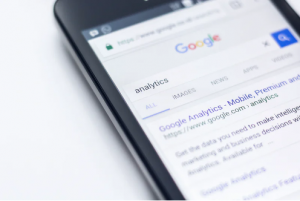My Data! On My Terms!
By Anonymous | May 28, 2021
Elevator Pitch: It’s time to reclaim user data with innovative storage and distribution models. It’s time to provide more independent oversight on user data usage practices by enterprises.
Don’t you hate when you visit a website, you are forced to accept their cookies in the name of personalization and if you choose to not accept, you won’t have access to the majority of the websites? The cost of ad supported content is leaving our personal data in the hands of 3rd party website providers. Similarly, e-commerce websites force their users to leave their data in the name of customization and personalization.

Scariest part of this transaction is its perpetual nature – there are no expiration dates when you accept their cookies. Yes one could delete these cookies but how many know how to do it and how many actually take time to delete them? Companies could take the data and use it in various applications as part of their data science algorithms. Thanks to stringent privacy laws and regulations (such as GDPR in the EU and CCPA in California), companies anonymize your personal data but the individual is not benefiting from their personal data beyond their personalized experience.
User Leaves More Than Just Data
When a company captures user data, it is capturing more than just data or metrics.
- User attention – User effort – User time – amount of time users have spent on their site which in turn generated the data the company has captured from the user. For example, the more time a user spends on a site like Facebook, the more user data generated for them to use to not only customize that user’s experience but also help in all other aspects of their business along with billions of other users.
- User choices – User preferences – tells the company not only about the user but also how similar or dissimilar the user is with the rest of the site visitors and that knowledge is useful for the site owners. For example, Netflix not only recognizes users based on their geolocation, address or the device they use, but it also benefits from the movies the user watches by recommending to other viewers who have similar tastes or viewing habits. Basically crowdsourcing the recommendations that are personal to individual users.
So, in the end, the users also create value for the company on top of getting some minor reward as personalization.
Just giving a personalized experience in return for the user data is not enough. All the users should get more value from this interaction and the relationship with the website.
User Data Usage Needs Independent Auditing
Public companies have to hire independent auditors to make sure accounting practices are in compliance with IRS regulations, establish credibility, fraud prevention and process improvement. In this day and age when data is considered to be the life blood of digital organizations, why isn’t there independent auditing of user data usage to ensure proper usage. With such independent checks and balances, industry could avoid situations such as Cambridge Analytica influencing 2016 presidential elections using Facebook user data. Such independent oversight will help ensure “The Belmont Principles” and “The Common Law” are not violated by companies handling user data.

User Data Usage – Time to Hit The Reset Button
Users should have more control over their data and it is time we hit the reset button, change the rules of the game and in fact the entire playing field.
It’s time to provide more options for users to store their data. Here are few potential options for users to choose from:
- Personal Data Storage (PDS) – There are quite a few companies that have entered this space that offer more control over user data.
- Independent trusted custodians
- Identify storage providers by type or importance of the data – User’s don’t have to keep all their data in one place. For example, medical/health data can be stored in Independent trusted custodians whereas browsing data can be stored with PDS.
With users getting more control on where and how they store their data, they should be able to “approve/authorize” their data usage to companies for specific purposes/applications. Think of this as “AirBnB of User Data”.
User Data “approve/authorize” Models (All these are either paid or pro bono models)
- Use the data for user’s applications/use cases (Example – enhance my shopping experience – aka targeted ads)
- Use user data for helping the community or society (Example – research, medicine development and collective wisdom)
Reference Links
- Facebook and Cambridge Analytica Scandal – https://www.nytimes.com/2018/04/04/us/politics/cambridge-analytica-scandal-fallout.html
- The Belmont Principles – https://www.hhs.gov/ohrp/regulations-and-policy/belmont-report/read-the-belmont-report/index.html
- The Common Law –https://nij.ojp.gov/funding/common-rule
- Personal Data Store – https://medium.com/@shevski/are-personal-data-stores-about-to-become-the-next-big-thing-b767295ed842
